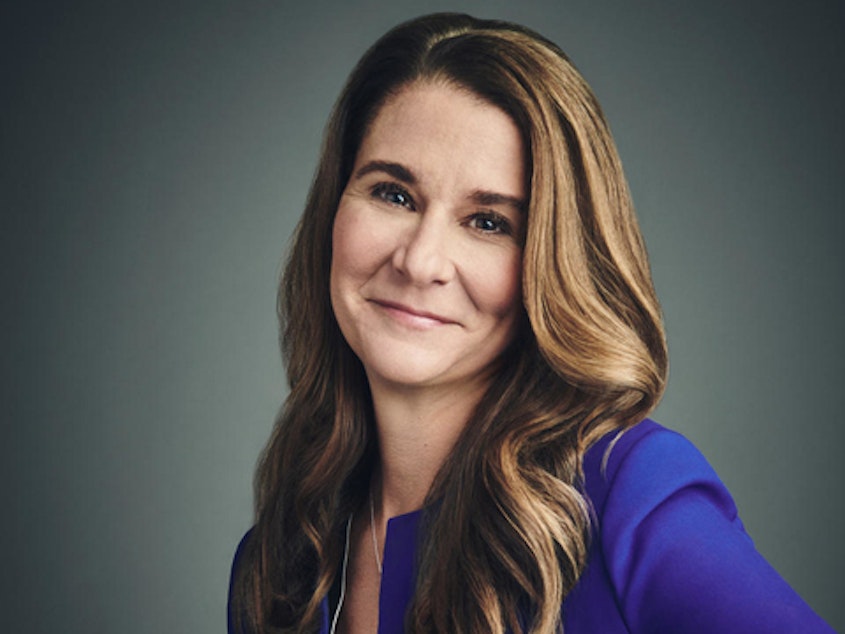Melinda French Gates and the unique qualities of women’s philanthropy

Melinda French Gates is leaving the Bill and Melinda Gates Foundation to pursue new projects. As part of her agreement with her former husband, she will receive $12.5 billion to put toward her own philanthropic work.
For insights into the kind of impact French Gates might have next, KUOW’s Kim Malcolm spoke to Jacqueline Ackerman, the interim director of the Women’s Philanthropy Institute at the Indiana University Lilly Family School of Philanthropy.
This interview has been edited for clarity.
Kim Malcolm: What was your reaction when you heard about Melinda French Gates leaving the Gates Foundation?
Jacqueline Ackerman: My initial reaction was one of curiosity and optimism. It’s a big change to one of the largest philanthropic organizations to ever exist. There are a lot of things that we don't know yet about how this transition will take place, and what Melinda French Gates’ philanthropy will look like in the future. But that said, this move opens new opportunities for her to focus even more intently on gender equality and women's empowerment. She's already accomplished great things. And I'm really looking forward to seeing what her journey looks like in the years to come.
You mentioned optimism about hearing this news. Why optimism?
The Women's Philanthropy Institute does research on how and why women give. Our research shows that women's and girl's causes are chronically underfunded and under-resourced. They receive less than 2% of overall charitable giving in the United States each year. For a mega-donor like Melinda French Gates to be a champion for women's and girl's causes, and then for her to strike out on her own with this additional $12.5 billion, we at the Women's Philanthropy Institute are just really excited to see how she might use those funds to advance women's and girl’s causes in the US.
Sponsored
What has your research shown about the differences in the ways that women and men approach charitable giving?
We have been researching gender differences in giving for around 15 years. In that time, we have distilled our research into a few data points. We know that women are more likely than men to give to charity. We know that when we compare similar women and men in terms of assets and income, women tend to give higher amounts overall.
And there are some unique aspects to how women like to give. Women tend to give more collaboratively. They tend to enjoy giving together. And they tend to engage deeply with the organizations and the individuals that benefit from their generosity.
Women are more likely to give to almost every cause area in charitable giving. But importantly, women's and girl’s causes are a big one. So, despite this under-resourcing of women's and girl’s organizations in the US, women are more likely to identify with those causes and to give to those causes compared to men.
How does Melinda French Gates fit into that picture so far, based on where she's already given?
Sponsored
Melinda French Gates exemplifies our research in a number of ways, not just where she's giving to the women's and girl’s space, etc., but in the how. She is using all of her resources to influence the causes that she cares about.
What do you think she might do with the $12.5 billion now?
I anticipate she will continue to focus on gender equity and women's empowerment. It has been her top cause and top focus area for many years. I think thr ‘how’ might change. I think the specific tools and the specific type of influence she wields might change. But I do think that that focus on gender equity, and gender equality is going to remain. She has been a steadfast supporter and I can't see that changing anytime soon.
Editor's note: This story was updated on May 23, 2024 to include the following mention that The Bill and Melinda Gates Foundation is a financial supporter of KUOW and has also funded the Women’s Philanthropy Institute at the Indiana University Lilly Family School of Philanthropy.
Listen to the interview by clicking the play button above.


